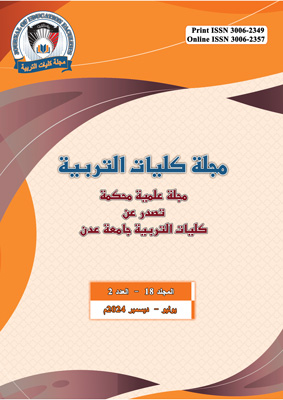Reception Theory and its Perceptions of Literary Meaning
DOI:
https://doi.org/10.47372/jef.(2024)18.2.97Keywords:
Meaning, Reception, Perception, Text, Reader, HorizonAbstract
Reception theory made a significant contribution to the study of meaning, and presented new insights in its study of literary meaning in which it contradicted the perceptions that link meaning to the text or its author, and saw that literary meaning results from the process of receiving and accepting the text. In this research, there is a theoretical reading of the most important perceptions of literary meaning in reception theory, starting from an awareness of the importance of these perceptions in the study of meaning and their impact on the contemporary hermeneutical lesson, and from an awareness of the importance of contributing to the dissemination of theoretical knowledge of the perceptions of reception theory and its innovative visions in the study of meaning. Based on this importance, the research aims to clarify the scientific concepts of reception theory, its perceptions of literary meaning, clarify its methodological procedures, its most important analytical statements, and discuss and evaluate the interests of its most prominent figures and their perceptions.
To achieve these goals, this research adopted the descriptive analytical method. The content of this study was organized into an introduction, a preface, three sections, and a conclusion. In the introduction, it dealt with a brief presentation of the process of renewing the concept of meaning in literary criticism. In the first section, the concept of reception theory and its methodological procedures was presented, and in the second section. He studied how meaning is formed and the areas of analysis. In the third section, he wrote down a set of conclusions and discussions, then a conclusion in which he summarized the most important results of the research that confirm that reception theory constituted a qualitative shift in its innovative conceptions of literary meaning. It succeeded in directing attention to the reader as the source and producer of meaning. However, it was not spared the problems and contradictions that exposed it to criticism.
Downloads
Published
How to Cite
Issue
Section
License
Copyright (c) 2025 Journal of the Faculties of Education - University of Aden

This work is licensed under a Creative Commons Attribution-NonCommercial 4.0 International License.

